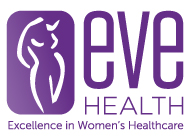If you’re an expectant mum, developing a birth plan can help you to prepare for a labour and birth that will fit in with your lifestyle and expectations. A birth plan isn’t a script. It is essentially a written practical wish list of all your preferences for labour and delivery, which is shared with your obstetrician, midwives and other caregivers.
It’s a document that assists your maternity healthcare provider in best assisting you during your labour and birth. It lets your healthcare team know of any special circumstances, requests, desires or expectations you may have ahead of the birth. If you are someone who likes to deal with pain on your own, a birth plan lets your care providers know that. If you are someone who would like an early epidural, your care providers can facilitate this. The major benefits of a birth plan are that it involves you doing some research and reading about your options during your pregnancy and having a discussion about them with your obstetrician and/or midwife.
As there are so many variations in labour and birth, it is best to be flexible in your planning though, rather than prescriptive. Sometimes changes need to be made for the health, safety and comfort of yourself and your baby. This doesn’t necessarily mean that things haven’t gone to ‘plan’. Your birth plan simply helps caregivers do their best to make your experience what you are hoping for.
Many pregnancy books and websites now feature information about birth plans, and hospitals or obstetricians often have templates for you to complete. These often feature your chosen hospital’s own model of care and questions for you to consider before writing down your answers.
It is also good to write a birth plan even if you are having an elective caesarean section. Some research supports that women are more satisfied with their birth if they have a birth plan, regardless of the mode of birth.
Topics usually covered in the birth plan include:
Environment & birth
Labour preferences could include if you would like dim lighting, if you are bringing music, using aromatherapy, wish to use a birthing ball, or how you would like the birth of your placenta managed. It will also outline your preferences should you have a Caesarean birth, such as who you might like to trim the umbilical cord.
If you have your heart set on a waterbirth, it is very important to discuss this with your obstetrician during your antenatal appointments, as some obstetricians prefer not to facilitate a birth through water.
Support people
A list of people you would like to be with you during labour, and during what procedures or stages. For example, you might like your mum there as a support person but prefer her to hop out of the room during any vaginal examinations.
Pain relief
During your pregnancy your obstetrician or midwife will discuss pain relief options available to you during labour, birth and caesarean section (if required, or in the case of an emergency). In your birth plan, you will be able to state what your preferred option for pain relief is, and what you would be open to should things not go as you’d hoped. Options may include bath, shower, heat pack, TENS machine, sterile water injections, massage, movement, visualisations, epidural, nitrous gas or morphine. You might even like to write down your preferred order for pain relief. You can also list anything you really want to avoid, keeping in mind that this of course may change when you’re in labour.
Baby care
Most of the time it will be assumed that you are planning to breastfeed your baby unless you specify otherwise. You will also be asked if you would are happy for the midwife to give your baby Vitamin K (via injection or orally) and Hepatitis B vaccine injection. If you do not want your baby to have certain treatments, it is important to also understand any risks associated with refusing them.
Special needs
If you have any additional needs, please note these on your birth plan, specifying any support you require. These may be mobility, religious or cultural needs for example, or you may need special equipment at the birth if you live with a disability.
One of the most important things to remember is that birth plans don’t always go to plan. You may change your mind in the birth suite and that’s okay, or there may be unexpected complications. Just be open to last minute changes, as your health and the health of your baby is paramount.
One of the best things I advise people to do if they are expecting a baby is to attend antenatal classes. Different options may be discussed that you may not have considered. You can find information about antenatal education options at Eve Health by following this link. There are also many books and fantastic resources online now about preparing for a birth. These resources often detail other women’s experiences which can in-turn help you decide what type of birth plan is best for you.
Some helpful resources for further reading about birth plans:
Birthwell birthright Birth plan – (this includes some great ideas about considering your 5 senses when writing your birth plan)
Comments are closed.
